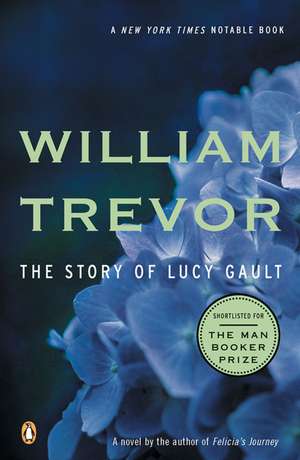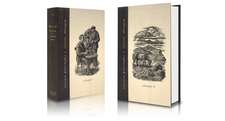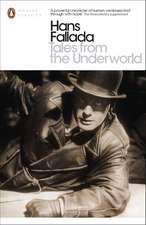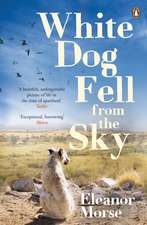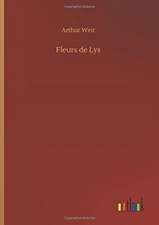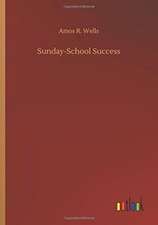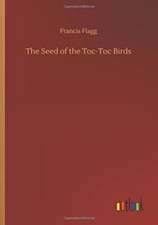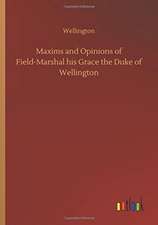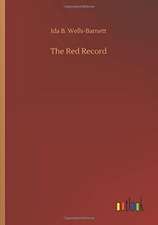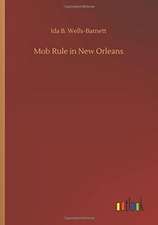The Story of Lucy Gault
Autor William Trevoren Limba Engleză Paperback – 31 iul 2003 – vârsta de la 18 ani
Vezi toate premiile Carte premiată
Man Booker Prize (2002), Costa Book Awards (2002)
The stunning new novel from highly acclaimed author William Trevor is a brilliant, subtle, and moving story of love, guilt, and forgiveness. The Gault family leads a life of privilege in early 1920s Ireland, but the threat of violence leads the parents of nine-year-old Lucy to decide to leave for England, her mother's home. Lucy cannot bear the thought of leaving Lahardane, their country house with its beautiful land and nearby beach, and a dog she has befriended. On the day before they are to leave, Lucy runs away, hoping to convince her parents to stay. Instead, she sets off a series of tragic misunderstandings that affect all of Lahardane's inhabitants for the rest of their lives.
| Toate formatele și edițiile | Preț | Express |
|---|---|---|
| Paperback (2) | 52.30 lei 26-32 zile | +17.63 lei 10-14 zile |
| Penguin Books – 23 apr 2003 | 52.30 lei 26-32 zile | +17.63 lei 10-14 zile |
| Penguin Books – 31 iul 2003 | 83.53 lei 3-5 săpt. |
Preț: 83.53 lei
Nou
Puncte Express: 125
Preț estimativ în valută:
15.98€ • 16.73$ • 13.23£
15.98€ • 16.73$ • 13.23£
Carte disponibilă
Livrare economică 15-29 martie
Preluare comenzi: 021 569.72.76
Specificații
ISBN-13: 9780142003312
ISBN-10: 014200331X
Pagini: 240
Dimensiuni: 130 x 198 x 11 mm
Greutate: 0.17 kg
Editura: Penguin Books
ISBN-10: 014200331X
Pagini: 240
Dimensiuni: 130 x 198 x 11 mm
Greutate: 0.17 kg
Editura: Penguin Books
Recenzii
"One of Trevor's finest works . . . Few living writers are capable of such mournful depth as William Trevor, and here he has given us an evensong to time itself." (The Boston Globe)
"Mr. Trevor's pure observation and transparent prose should shame other writers." (New York Sun)
"The Story of Lucy Gault . . . once read, will never be forgotten." (The Washington Post Book World)
"Beautifully drawn and revelatory. Beautifully drawn and revelatory." (Harper's Magazine)
"Beautiful and devastating . . . Trevor has once again captured the terrible beauty of Ireland's fate, and the fate of us all-at the mercy of history, circumstance, and the vicissitudes of time." (Alice McDermott, The Atlantic Monthly)
From the award-winning author of Felicia's Journey and My House in Umbria, a new novel that "may well be his masterpiece." (Philadelphia Inquirer)
"Mr. Trevor's pure observation and transparent prose should shame other writers." (New York Sun)
"The Story of Lucy Gault . . . once read, will never be forgotten." (The Washington Post Book World)
"Beautifully drawn and revelatory. Beautifully drawn and revelatory." (Harper's Magazine)
"Beautiful and devastating . . . Trevor has once again captured the terrible beauty of Ireland's fate, and the fate of us all-at the mercy of history, circumstance, and the vicissitudes of time." (Alice McDermott, The Atlantic Monthly)
From the award-winning author of Felicia's Journey and My House in Umbria, a new novel that "may well be his masterpiece." (Philadelphia Inquirer)
Notă biografică
William Trevor was born in Mitchelstown, County Cork, and spent his childhood in provincial Ireland. He studied at Trinity College, Dublin. He is the author of twenty-nine books, including Felicia's Journey, which won the Whitbread Book of the Year Award and was made into a motion picture, and The Story of Lucy Gault, which was shortlisted for both the Man Booker Prize and the Whitbread Fiction Prize. In 1996 he was the recipient of the Lannan Award for Fiction. In 2001, he won the Irish Times Literature Prize for fiction. Two of his books were chosen by The New York Times as best books of the year, and his short stories appeared regularly in The New Yorker. In 1997, he was named Honorary Commander of the British Empire.
Extras
Captain Everard Gault wounded the boy in the right shoulder on the night of June the twenty-first, nineteen twenty-one. Aiming above the trespassers' heads in the darkness, he fired the single shot from an upstairs window and then watched the three figures scuttling off, the wounded one assisted by his companions.
They had come to fire the house, their visit expected because they had been before. On that occasion they had come later, in the early morning, just after one. The sheepdogs had seen them off, but within a week the dogs lay poisoned in the yard and Captain Gault knew that the intruders would be back. 'We're stretched at the barracks, sir,' Sergeant Talty had said when he came out from Enniseala. 'Oh, stretched shocking, Captain.' Lahardane wasn't the only house under threat; every week somewhere went up, no matter how the constabulary were spread. 'Please God, there'll be an end to it,' Sergeant Talty said, and went away. Martial law prevailed, since the country was in a state of unrest, one that amounted to war. No action was taken about the poisoning of the dogs.
When daylight came on the morning after the shooting, blood could be seen on the sea pebbles of the turn-around in front of the house. Two petrol tins were found behind a tree. The pebbles were raked, a couple of bucketfuls that had been discoloured in the accident taken away.
Captain Gault thought it would be all right then: a lesson had been learnt. He wrote to Father Morrissey in Enniseala, asking him to pass on his sympathy and his regret if the priest happened to hear who it was who'd been wounded. He had not sought to inflict an injury, only to make it known that a watch was being kept. Father Morrissey wrote back. He was always the wild one in that family, he concluded his comments on the event, but there was an awkwardness about his letter, about the choice of phrases and of words, as if he found it difficult to comment on what had occurred, as if he didn't understand that neither death nor injury had been intended. He had passed the message on, he wrote, but no acknowledgement had come back from the family he referred to.
Captain Gault had been wounded himself. For six years, since he had come back an invalid from the trenches, he had carried fragments of shrapnel in his body, and they would always be there now. His injury at that time had brought his military career to an end: he would remain forever a captain, which was intensely a disappointment, since he had always imagined achieving much higher rank. But he was not, in other ways, a disappointed man. There was the great solace of his happy marriage, of the child his wife, Heloise, had borne him, of his house. There was no other place he might more happily have lived than beneath the slated roof of its three grey storeys, the stone softened by the white woodwork of the windows and the delicate fanlight above a white hall door. Flanking it on its right was the wide high archway of a cobbled yard, with cobbled passageways leading to an apple orchard and a garden. One half of the circle on to which the front rooms looked out was the gravel sweep; the other was a raised lawn that was separated from steeply rising woods by a curve of blue hydrangeas. The upstairs rooms at the back had a view of the sea as far as the sea's horizon.
The origins of the Gaults in Ireland had centuries ago misted over. Previously of Norfolk - so it was believed within the family, although without much certainty - they had settled first of all in the far western reaches of County Cork. A soldier of fortune had established their modest dynasty, lying low there for reasons that were not known. Some time in the early eighteenth century the family had moved east, respectable and well-to-do by then, one son or another of each generation continuing the family's army connection. The land at Lahardane was purchased; the building of the house began. The long, straight avenue was made, lines of chestnut trees planted along it on either side, the woodlands of the glen laid out. Later generations planted the orchard, with stock from County Armagh; the garden, kept small, was created bit by bit. In 1769 Lord Townshend, the Lord Lieutenant, stayed at Lahardane; in 1809 Daniel O'Connell did when there wasn't a bedroom unoccupied at the Stuarts' Dromana. History touched the place in that way; but as well-remembered, as often talked about, were births and marriages and deaths, domestic incidents, changes and additions to this room or that, occasions of anger or reconciliation. Suffering a stroke, a Gault in 1847 lay afflicted for three years yet not insensible. There was a disastrous six months of card-playing in 1872 during which field after field was lost to the neighbouring O'Reillys. There was the diphtheria outbreak that spread so rapidly and so tragically in 1901, sparing only the present Everard Gault and his brother in a family of five. Above the writing-desk in the drawing-room there was a portrait of a distant ancestor whose identity had been unknown for as long as anyone of the present could remember: a spare, solemn countenance where it was not whiskered, blue unemphatic eyes. It was the only portrait in the house, although since photography had begun there were albums that included the images of relatives and friends as well as those of the Gaults of Lahardane.
All this - the house and the remnants of the pasture land, the seashore below the pale clay cliffs, the walk along it to the fishing village of Kilauran, the avenue over which the high branches of the chestnut trees now met - was as much part of Everard Gault as the features of his face were, the family traits that quite resembled a few of those in the drawing-room portrait, the smooth dark hair. Tall and straight-backed, a man who hid nothing of himself, slight in his ambitions now, he had long ago accepted that his destiny was to keep in good heart what had been his inheritance, to attract bees to his hives, to root up his failing apple trees and replace them. He swept the chimneys of his house himself, could repoint its mortar and replace its window glass. Creeping about on its roof, he repaired in the lead the small perforations that occurred from time to time, the Seccotine he squeezed into them effective for a while.
In many of these tasks he was assisted by Henry, a slow-moving, heavily made man who rarely, in daytime, removed the hat from his head. Years ago Henry had married into the gate-lodge, of which he and Bridget were now the sole occupants, since no children had been born to them and Bridget's parents were no longer alive. Her father, with two men under him, had looked after the horses and seen to all that Henry on his own now saw to in the yard and the fields. Her mother had worked in the house, her grandmother before that. Bridget was as thickset as her husband, with strong wide shoulders and a capable manner: the kitchen was wholly in her charge. The bedroom maid, Kitty Teresa, assisted Heloise Gault in what had once been the duties of several indoor servants; old Hannah walked over from Kilauran once a week to wash the clothes and sheets and tablecloths, and to scrub the tiles of the hall and the stone floors at the back. The style of the past was no longer possible at Lahardane. The long avenue passed through the land that had become the O'Reillys' at the card table, when the Gaults of that time had been left with pasture enough only to support a modest herd of Friesians.
Three days after the shooting in the night Heloise Gault read the letter that had come from Father Morrissey, then turned it over and read it again. She was a slender, slightly built woman in her late thirties, her long fair hair arranged in a style that complemented her features, imbuing a demure beauty with a hint of severity that was constantly contradicted by her smile. But her smile had not been much in evidence since the night she had been woken by a shot.
Even though in the ordinary run of things she was not pusillanimous, Heloise Gault felt frightened. She, too, came of an army family and had taken it in her stride when, a few years before her marriage, she was left almost alone in the world on the death of her mother, who had been widowed during the war with the Boers. Courage came naturally to her in times of upheaval or grief, but was not as generously there as she imagined it would be when she reflected upon the attempt to burn down the house she and her child and her maid had been asleep in. There'd been, as well, the poisoning of the dogs and the unanswered message to the young man's family, the blood on the pebbles. 'I'm frightened, Everard,' she confessed at last, no longer keeping her feelings private.
They knew each other well, the Captain and his wife. They had in common a certain way of life, an order of priorities and concerns. Their shared experience of death when they were young had drawn them close and in their marriage had made precious for them the sense of family that the birth of a child allowed. Heloise had once assumed that other children would be born to her, and still had not abandoned hope that one more at least might be. But in the meanwhile she was so convincingly persuaded by her husband that the lack of a son to inherit Lahardane was not a failure on her part that she experienced - and more and more as her only child grew up - gratitude for the solitary birth and for a trinity sustained by affection.
'It's not like you to be frightened, Heloise.'
'All this has happened because I'm here. Because I am an English wife at Lahardane.'
She it was, Heloise insisted, who drew attention to the house, but her husband doubted it. He reminded her that what had been attempted at Lahardane was part of a pattern that was repeated all over Ireland. The nature of the house, the possession of land even though it had dwindled, the family's army connection, would have been enough to bring that trouble in the night. And he had to admit that the urge to cause destruction, whatever its origin, could not be assumed to have been stifled by the stand he'd taken. For some time afterwards Everard Gault slept in the afternoon and watched by night; and although no one disturbed his vigil, this concern with protection, and his wife's apprehension, created in the household further depths of disquiet, a nerviness that affected everyone, including in the end the household's child.
They had come to fire the house, their visit expected because they had been before. On that occasion they had come later, in the early morning, just after one. The sheepdogs had seen them off, but within a week the dogs lay poisoned in the yard and Captain Gault knew that the intruders would be back. 'We're stretched at the barracks, sir,' Sergeant Talty had said when he came out from Enniseala. 'Oh, stretched shocking, Captain.' Lahardane wasn't the only house under threat; every week somewhere went up, no matter how the constabulary were spread. 'Please God, there'll be an end to it,' Sergeant Talty said, and went away. Martial law prevailed, since the country was in a state of unrest, one that amounted to war. No action was taken about the poisoning of the dogs.
When daylight came on the morning after the shooting, blood could be seen on the sea pebbles of the turn-around in front of the house. Two petrol tins were found behind a tree. The pebbles were raked, a couple of bucketfuls that had been discoloured in the accident taken away.
Captain Gault thought it would be all right then: a lesson had been learnt. He wrote to Father Morrissey in Enniseala, asking him to pass on his sympathy and his regret if the priest happened to hear who it was who'd been wounded. He had not sought to inflict an injury, only to make it known that a watch was being kept. Father Morrissey wrote back. He was always the wild one in that family, he concluded his comments on the event, but there was an awkwardness about his letter, about the choice of phrases and of words, as if he found it difficult to comment on what had occurred, as if he didn't understand that neither death nor injury had been intended. He had passed the message on, he wrote, but no acknowledgement had come back from the family he referred to.
Captain Gault had been wounded himself. For six years, since he had come back an invalid from the trenches, he had carried fragments of shrapnel in his body, and they would always be there now. His injury at that time had brought his military career to an end: he would remain forever a captain, which was intensely a disappointment, since he had always imagined achieving much higher rank. But he was not, in other ways, a disappointed man. There was the great solace of his happy marriage, of the child his wife, Heloise, had borne him, of his house. There was no other place he might more happily have lived than beneath the slated roof of its three grey storeys, the stone softened by the white woodwork of the windows and the delicate fanlight above a white hall door. Flanking it on its right was the wide high archway of a cobbled yard, with cobbled passageways leading to an apple orchard and a garden. One half of the circle on to which the front rooms looked out was the gravel sweep; the other was a raised lawn that was separated from steeply rising woods by a curve of blue hydrangeas. The upstairs rooms at the back had a view of the sea as far as the sea's horizon.
The origins of the Gaults in Ireland had centuries ago misted over. Previously of Norfolk - so it was believed within the family, although without much certainty - they had settled first of all in the far western reaches of County Cork. A soldier of fortune had established their modest dynasty, lying low there for reasons that were not known. Some time in the early eighteenth century the family had moved east, respectable and well-to-do by then, one son or another of each generation continuing the family's army connection. The land at Lahardane was purchased; the building of the house began. The long, straight avenue was made, lines of chestnut trees planted along it on either side, the woodlands of the glen laid out. Later generations planted the orchard, with stock from County Armagh; the garden, kept small, was created bit by bit. In 1769 Lord Townshend, the Lord Lieutenant, stayed at Lahardane; in 1809 Daniel O'Connell did when there wasn't a bedroom unoccupied at the Stuarts' Dromana. History touched the place in that way; but as well-remembered, as often talked about, were births and marriages and deaths, domestic incidents, changes and additions to this room or that, occasions of anger or reconciliation. Suffering a stroke, a Gault in 1847 lay afflicted for three years yet not insensible. There was a disastrous six months of card-playing in 1872 during which field after field was lost to the neighbouring O'Reillys. There was the diphtheria outbreak that spread so rapidly and so tragically in 1901, sparing only the present Everard Gault and his brother in a family of five. Above the writing-desk in the drawing-room there was a portrait of a distant ancestor whose identity had been unknown for as long as anyone of the present could remember: a spare, solemn countenance where it was not whiskered, blue unemphatic eyes. It was the only portrait in the house, although since photography had begun there were albums that included the images of relatives and friends as well as those of the Gaults of Lahardane.
All this - the house and the remnants of the pasture land, the seashore below the pale clay cliffs, the walk along it to the fishing village of Kilauran, the avenue over which the high branches of the chestnut trees now met - was as much part of Everard Gault as the features of his face were, the family traits that quite resembled a few of those in the drawing-room portrait, the smooth dark hair. Tall and straight-backed, a man who hid nothing of himself, slight in his ambitions now, he had long ago accepted that his destiny was to keep in good heart what had been his inheritance, to attract bees to his hives, to root up his failing apple trees and replace them. He swept the chimneys of his house himself, could repoint its mortar and replace its window glass. Creeping about on its roof, he repaired in the lead the small perforations that occurred from time to time, the Seccotine he squeezed into them effective for a while.
In many of these tasks he was assisted by Henry, a slow-moving, heavily made man who rarely, in daytime, removed the hat from his head. Years ago Henry had married into the gate-lodge, of which he and Bridget were now the sole occupants, since no children had been born to them and Bridget's parents were no longer alive. Her father, with two men under him, had looked after the horses and seen to all that Henry on his own now saw to in the yard and the fields. Her mother had worked in the house, her grandmother before that. Bridget was as thickset as her husband, with strong wide shoulders and a capable manner: the kitchen was wholly in her charge. The bedroom maid, Kitty Teresa, assisted Heloise Gault in what had once been the duties of several indoor servants; old Hannah walked over from Kilauran once a week to wash the clothes and sheets and tablecloths, and to scrub the tiles of the hall and the stone floors at the back. The style of the past was no longer possible at Lahardane. The long avenue passed through the land that had become the O'Reillys' at the card table, when the Gaults of that time had been left with pasture enough only to support a modest herd of Friesians.
Three days after the shooting in the night Heloise Gault read the letter that had come from Father Morrissey, then turned it over and read it again. She was a slender, slightly built woman in her late thirties, her long fair hair arranged in a style that complemented her features, imbuing a demure beauty with a hint of severity that was constantly contradicted by her smile. But her smile had not been much in evidence since the night she had been woken by a shot.
Even though in the ordinary run of things she was not pusillanimous, Heloise Gault felt frightened. She, too, came of an army family and had taken it in her stride when, a few years before her marriage, she was left almost alone in the world on the death of her mother, who had been widowed during the war with the Boers. Courage came naturally to her in times of upheaval or grief, but was not as generously there as she imagined it would be when she reflected upon the attempt to burn down the house she and her child and her maid had been asleep in. There'd been, as well, the poisoning of the dogs and the unanswered message to the young man's family, the blood on the pebbles. 'I'm frightened, Everard,' she confessed at last, no longer keeping her feelings private.
They knew each other well, the Captain and his wife. They had in common a certain way of life, an order of priorities and concerns. Their shared experience of death when they were young had drawn them close and in their marriage had made precious for them the sense of family that the birth of a child allowed. Heloise had once assumed that other children would be born to her, and still had not abandoned hope that one more at least might be. But in the meanwhile she was so convincingly persuaded by her husband that the lack of a son to inherit Lahardane was not a failure on her part that she experienced - and more and more as her only child grew up - gratitude for the solitary birth and for a trinity sustained by affection.
'It's not like you to be frightened, Heloise.'
'All this has happened because I'm here. Because I am an English wife at Lahardane.'
She it was, Heloise insisted, who drew attention to the house, but her husband doubted it. He reminded her that what had been attempted at Lahardane was part of a pattern that was repeated all over Ireland. The nature of the house, the possession of land even though it had dwindled, the family's army connection, would have been enough to bring that trouble in the night. And he had to admit that the urge to cause destruction, whatever its origin, could not be assumed to have been stifled by the stand he'd taken. For some time afterwards Everard Gault slept in the afternoon and watched by night; and although no one disturbed his vigil, this concern with protection, and his wife's apprehension, created in the household further depths of disquiet, a nerviness that affected everyone, including in the end the household's child.
Descriere
Shortlisted for the Man Booker Prize, this stunning novel from the author of "Felicia's Journey" is a brilliant, subtle, and moving story of love, guilt, and forgiveness set in early 1920s Ireland. A "New York Times" Notable Book.
Premii
- Man Booker Prize Nominee, 2002
- Costa Book Awards Nominee, 2002
